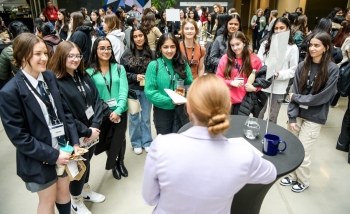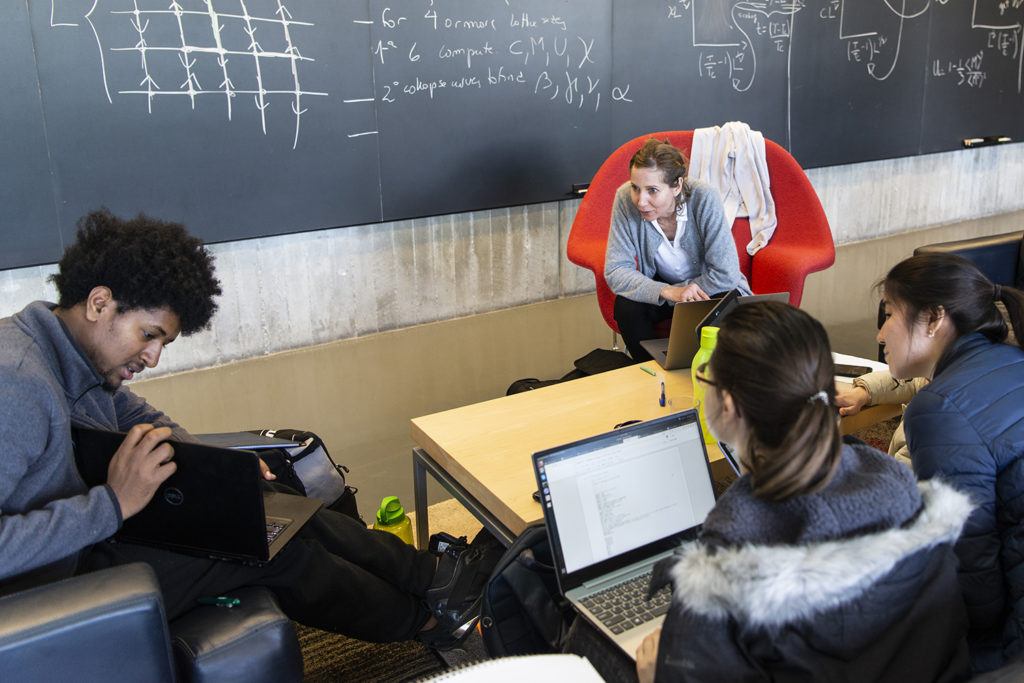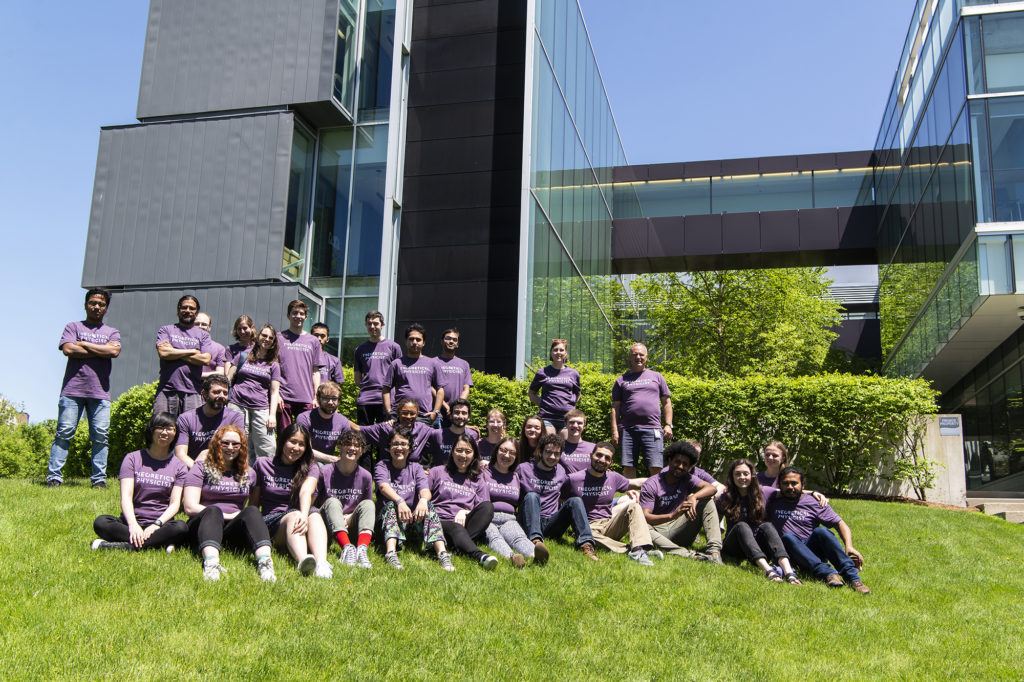Power outages and small explosions were the norm for Gebremedhin Dagnew as a youngster. They were also almost always his fault.
An inquisitive child growing up in Bahir Dar, Ethiopia, Dagnew would pry apart household electronics to figure out how they worked. “I would usually end up breaking them,” he admits.
Once, around the age of 10, Dagnew took the small motor from a cassette deck. “I wanted to see how fast it goes,” he says. He hooked it up to a battery: it spun, but not very fast. He added more batteries: it spun faster. Next, he tried hooking it up to a power socket in his house.
“Our power went down,” he laughs. “It was hard to fix. I really got into trouble. A lot of trouble. But there were moments where some things worked,” he adds. Like the time he asked a neighbouring household with satellite TV if they would mind if he tried fiddling with their cables. He took a long cable, bifurcated the neighbour’s output, and hooked it up to his own household receiver.
“The cables I used were very thin, and that kind of increased the resistance of the flow of the current. So it was bad quality when the signal reached our TV, but it worked.” Just like that, the family could watch movies together.
Dagnew never saw his tinkering misadventures as failures. Instead, they were opportunities to delve deeply into more fundamental questions.
“The fixing process was really interesting,” he says. “Things explode and I would go, ‘Well, why does it explode?’ Maybe I used too high a voltage. So then I would read about that or ask people.”
Dagnew pored over copies of popular science magazines that were available in a local library funded by the American consulate. Donated by external organizations that no longer needed them, the issues were never current, but that didn’t matter. The scientific process fascinated him.
Ultimately, physics was the only field that seemed to offer an outlet for Dagnew’s relentless curiosity. “Physics asks ‘where does everything come from?’” says Dagnew. “I wanted to answer those kind of questions.”
There was just one little problem with his plan. “Physics is not a thing where I’m from,” he says. “I couldn’t do it at home. Research in this area is not really on the cutting edge, at any point actually.”
Gebremedhin Dagnew (left) works on a problem during a group session as part of the Undergraduate Theoretical Physics Summer Program at Perimeter Institute.[/caption]
Undeterred, he applied to universities in the United States. With no home internet, he and his friends divided and conquered, saving application information to flash drives at their high school and working on them offline at home. The dedication paid off, and Dagnew scored a scholarship to study at Middlebury College in Vermont, becoming one of the first people from his school to study in the US.
This summer, Dagnew took on his first research experience as one of 20 students chosen to take part in the inaugural Undergraduate Theoretical Physics Summer Program at Perimeter Institute. The program invites budding physicists to visit Perimeter for two weeks in May, where they take in lectures from leading thinkers in theoretical physics and work together in small groups to grapple with real research problems. For 10 of the students, including Dagnew, that invitation extends beyond the summer, enabling them to work as assistants with Perimeter researchers.
For the first two weeks, Dagnew’s group worked on computer simulations to model phase transitions in condensed matter physics. He carried that knowledge forward to his summer research project, where he applied machine learning techniques to identify and simulate phase transitions.
The program was eye-opening from the very start. “In my first week here, I got exposed to some quantum information, some numerical methods. I got exposed to path integrals – things I would never know right now.”
He heard about the program from one of his professors at Middlebury, a former postdoc at the Institute for Quantum Computing at the University of Waterloo. It seemed to be a perfect fit: not only did it cater directly to his long-held interest in physics, it also mitigated some logistical difficulties that Dagnew faced with visa issues in the United States.
In addition to the research, one of the other highlights was the people he met. The 20 students in the program came from 16 different countries. “I’ve never seen such a diverse set of people in one place,” he notes. “We all speak different languages, but at the end of the day, we have this thing that brings us together.”
That thing, of course, is a deep-seated passion for physics and the desire for a deeper understanding of the universe. The group relished working together to problem solve as a team in Perimeter’s collaborative environment.
The participants of the 2019 Undergraduate Theoretical Physics Summer Program at Perimeter Institute.[/caption]
“I really like the Perimeter Institute in that it’s someplace where everyone thinks deeply about the important questions in physics,” he says. “It’s a good place to think. It’s a good place to work for the people here. And it’s a good place to learn, as well. I’m very delighted to be here.”
Dagnew’s summer experience has not only broadened his knowledge base within the field but also confirmed his plans for the future. “This is my first research experience, and it set the bar pretty high,” he says. “It’s a validation for myself that I do want to pursue research and that I want to continue my graduate study in physics.”
He knows the path toward that understanding isn’t always easy. Just as his childhood experiments didn’t always pan out, most ideas in physics take plenty of work – and many failures – before they start to show results.
But it’s all part of that scientific process that Dagnew fell in love with years ago and, for him, physics remains the beating heart of discovery. Through it, he says, “I can be the pioneer of an idea – whether it’s right or wrong.”
Further exploration
- Learn more: Undergraduate Theoretical Physics Summer Program at Perimeter Institute
- Learn more: Undergraduate Theoretical Physics Summer Program at Perimeter Institute
- Meet more People of PI: Unity seeker Elise LePage
- Meet more People of PI: Creative force Sonali Mohapatra
- Meet more People of PI: Quantum composer Barak Shoshany
About PI
Perimeter Institute is the world’s largest research hub devoted to theoretical physics. The independent Institute was founded in 1999 to foster breakthroughs in the fundamental understanding of our universe, from the smallest particles to the entire cosmos. Research at Perimeter is motivated by the understanding that fundamental science advances human knowledge and catalyzes innovation, and that today’s theoretical physics is tomorrow’s technology. Located in the Region of Waterloo, the not-for-profit Institute is a unique public-private endeavour, including the Governments of Ontario and Canada, that enables cutting-edge research, trains the next generation of scientific pioneers, and shares the power of physics through award-winning educational outreach and public engagement.
You might be interested in




